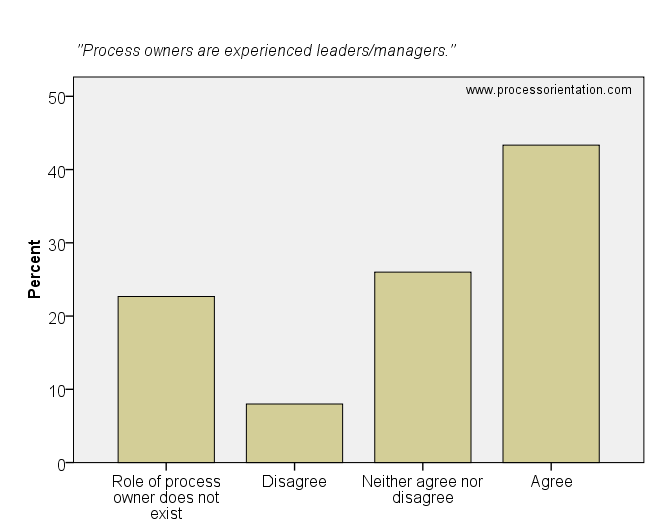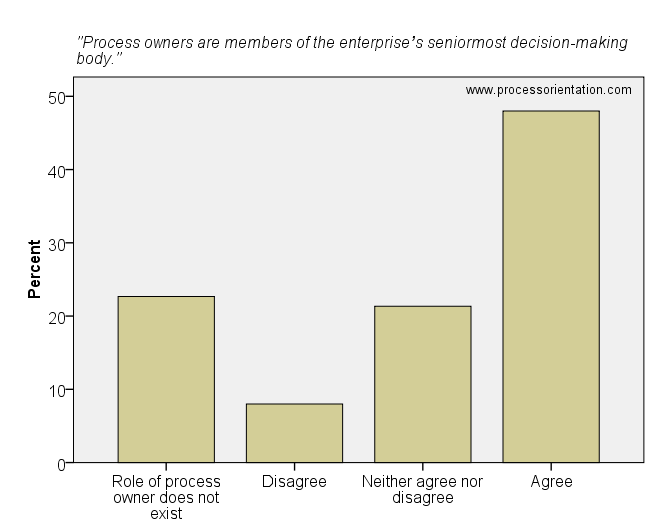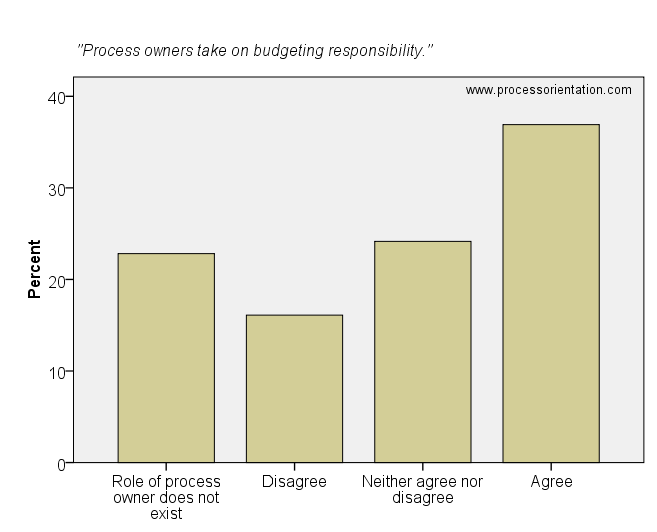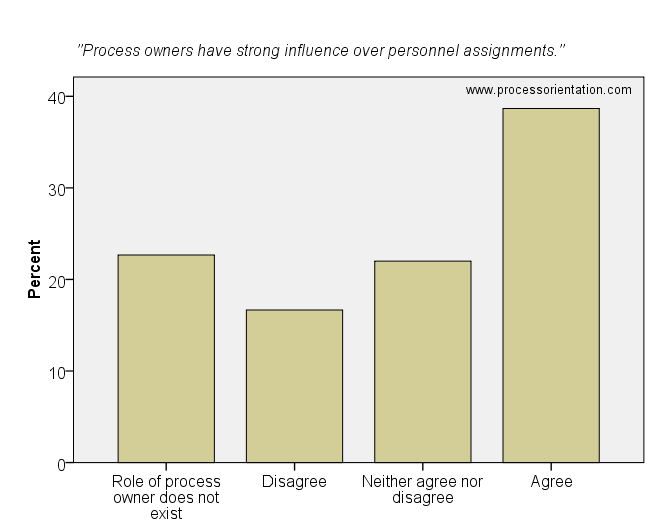The existence of process owners is the most visible difference between a process enterprise and a traditional organization (Hammer and Stanton, 1999). This article discusses the issue of the process owner role of the process management survey. Details on the survey (research design, sample, etc.) can be found here.
A business process needs to have a process owner having end to end responsibility of the process (Suter, 2009). The results of the survey show that the role of the process owner is established in most of the firms (see figures below). It is worth mentioning that 28% of the surveyed firms state that the role of the process owner does not exist.
The item “The role of the process owner is established in our organization and a process owner has been assigned to each business process” was rated by the firms in the sample as follows:
- 28%: Disagree
- 16%: Neither agree nor disagree
- 56%: Agree
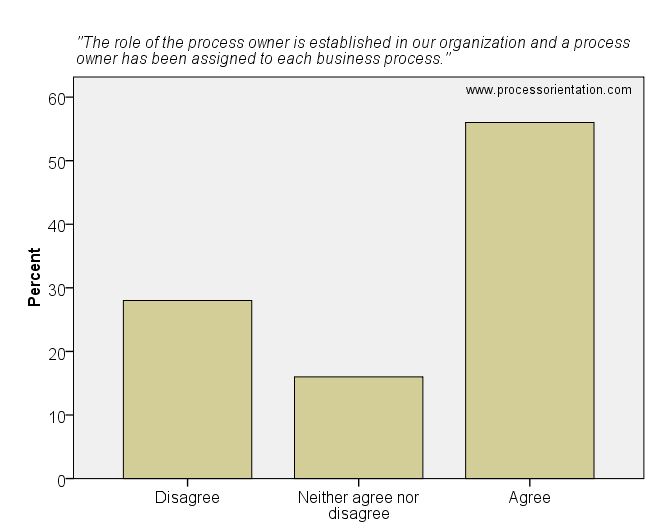
A process owner needs to have leadership experience (Schmelzer and Sesselmann, 2006). The results of the survey reveal that most of the firms which implemented the process owner role have assigned experienced leaders/managers to this role. The item “Process owners are experienced leaders/managers“ was rated by the firms in the sample as follows:
- 22,67%: Role of process owner does not exist
- 8,00%: Disagree
- 26,00%: Neither agree nor disagree
- 43,33%: Agree
Process owners have to have the authority to take all measures necessary to coordinate and improve the business process (Hinterhuber, 1995). The item “Process owners are members of the enterprise’s seniormost decision-making body” was rated by the firms in the sample as follows:
- 22,67%: Role of process owner does not exist
- 8,00%: Disagree
- 21,33%: Neither agree nor disagree
- 48,00%: Agree
An important task of a process owner is the continuous improvement and optimization of the process the owner is responsible for (Schmelzer and Sesselmann, 2006). The item “Process owners are responsible for the continuous improvement of their processes and they perform this task proactively” was rated by the firms in the sample as follows:
- 22,67%: Role of process owner does not exist
- 11,33%: Disagree
- 34,67%: Neither agree nor disagree
- 31,33%: Agree
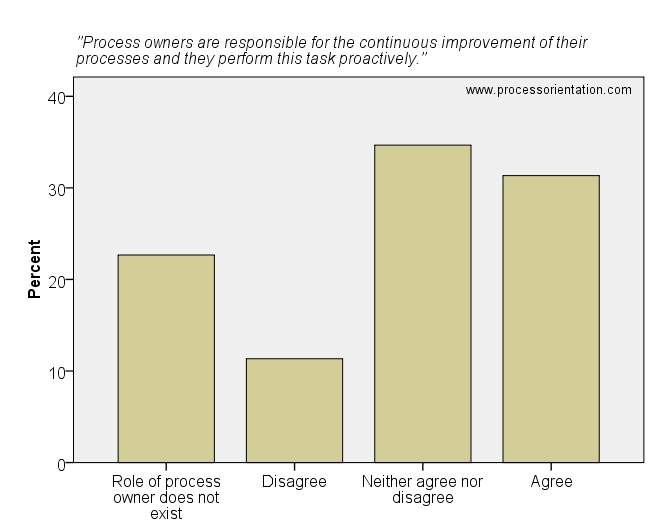
Process owners are responsible for the continuous improvement of their processes and they perform this task proactively.
In an ideal process-oriented organization, budgeting is done by process instead of by department (Hammer and Stanton, 1999). The item “Process owners take on budgeting responsibility” was rated by the firms in the sample as follows:
- 22,82%: Role of process owner does not exist
- 16,11%: Disagree
- 24,16%: Neither agree nor disagree
- 36,91%: Agree
Process performance logically depends on the workers executing the actual work within the process. If process owners have influence over personnel assignments, they thereby also have more influence on the performance of the process. The item “Process owners have strong influence over personnel assignments” was rated by the firms in the sample as follows:
- 22,67%: Role of process owner does not exist
- 16,67%: Disagree
- 22,00%: Neither agree nor disagree
- 38,67%: Agree
